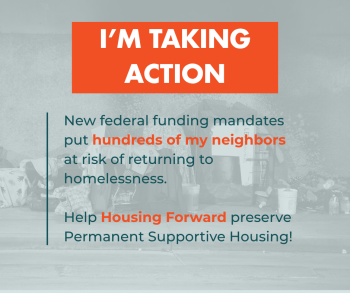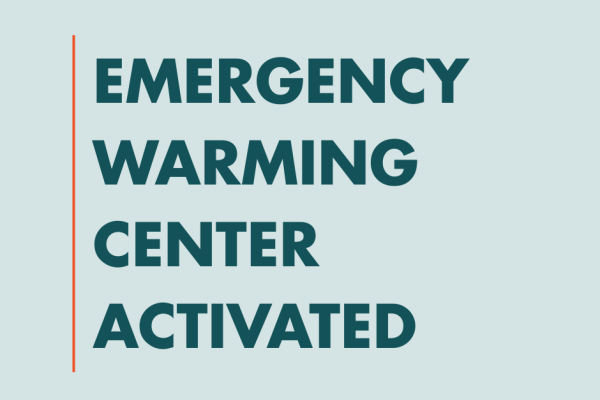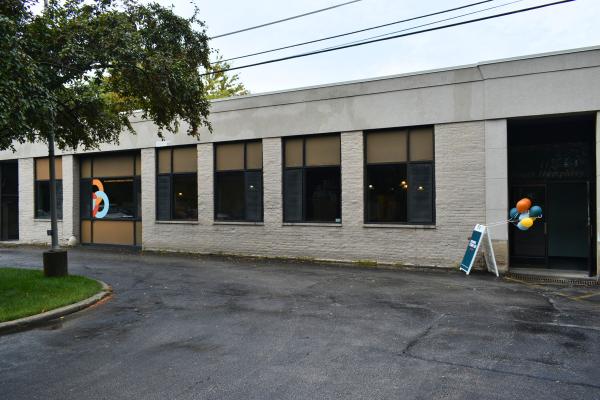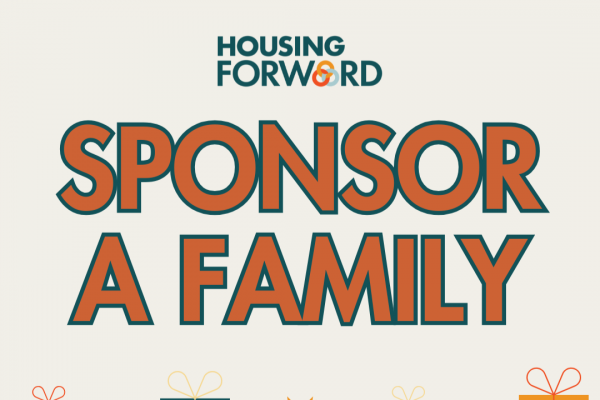New Federal Mandates Will Push 170,000 Back Into Homelessness
Updated January 30, 2026
On January 8, HUD issued a notice announcing that the Continuum of Care (CoC) Notice of Funding Opportunity (NOFO) for the 2024–2025 fiscal year would reopen, with submissions accepted through Monday, February 9. This action follows a December court injunction directing HUD not to enforce the new 2025 NOFO that was released in November 2025.
As a result, HUD has reversed course on the new NOFO, which helps preserve stability and continuity across existing CoC-funded programs. This decision is expected to protect critical funding streams and program operations through 2026, including Permanent Supportive Housing, and reduces the risk of disruption for those that we serve.
We ask you to contact Senator Dick Durbin, who sits on the THUD subcommittee, and let him know how your neighbors and community will be impacted by these HUD changes. Please contact to Libby Foster, Director of Communications, if you have questions about specific language to use.
Updated December 4, 2025
20 states, including Illinois, have joined a lawsuit against HUD and the current administration in response to the 2025 Continuum of Care NOFO released on November 14. The lawsuit accuses the Trump administration of violating the Administrative Procedure Act and Congress’ “constitutional power to control spending.” The NOFO includes a number of conditions for receiving funding that align with the administration’s stance on homelessness and DEI initiatives. These include the ability for HUD to deny funding for organizations that acknowledge sex other than binary or conduct “harm reduction” activities.
The current request from legislators is to extend the funding for grants expiring in 2026. This would prevent over 170,000 in permanent supportive housing to be pushed back into homelessness.
If the lawsuit is unsuccessful in blocking these funding cuts, applications for the FY 26 COC funding will be due to our local COC on December 15. At this time, HUD has not released an application or any additional information.
Late last week, HUD released the FY25 Continuum of Care NOFO-- the largest application for federal homelessness funding. Four months overdue, it confirms the worst: ideological and deeply damaging changes we have been bracing for. These changes to the federal funding process represent the largest disruption to our homeless response system in more than a decade. Simply put, new funding mandates will force communities nationwide to cut or eliminate programs that currently keep people housed.
Nationally, more than 170,000 people are expected to return to homelessness due to these changes. Locally, we anticipate hundreds of our clients will be directly and almost immediately impacted. Funding cuts are no longer theoretical; they are imminent. This is a devastating step backward for the nation’s homeless response.
Perhaps the most harmful change is a new cap on Permanent Supportive Housing (PSH), limiting communities to spending no more than 30% of their funding on this model. Today, communities across the country invest closer to 90% because PSH is an evidence-based solution that ends homelessness for people with disabling conditions. Housing Forward has provided Supportive Housing for nearly 20 years, and last year 92% of people in our programs remained stably housed. Today, we have 253 clients in Permanent Supportive Housing programs who could be forced to return to homelessness under these changes. These are seniors, veterans, families, and people with disabilities who are most at risk under this new directive.
There are also extremely troubling new funding requirements that reward organizations that comply with the administration's harmful policies around immigration enforcement. It also penalizes organizations for “engaging in racial preferences, using a definition of sex ‘other than binary,’ or conducting activities viewed as ‘harm reduction.’”
Compounding all of these challenges, HUD will not announce funding awards until May 2026, leaving a six-month federal funding gap for organizations entrusted to deliver vital housing and services, including ours.
Without question, homelessness will increase under this new paradigm.
Our values have not changed. We believe housing is a basic human right. Our priority is protecting our clients and doing whatever we can to ensure their services are not interrupted. In the coming weeks, we will be working closely with local, state, and national partners to navigate this new reality and identify solutions wherever possible. We will continue to share updates, resources, and ways to get involved whenever possible.
Please consider supporting our programing and our clients.
MAKE A DONATION
More information about advocacy efforts can be found below, along with social media templates which can be used to amplify this news.
Social Media Toolkit
Download this image to share on your social media.
Sample Caption
"New federal mandates will push hundreds of our neighbors back into homelessness. I'm supporting Housing Forward in their work to safeguard stable housing. Learn more on Housing Forward's website."
CONTACT YOUR REPRESENTATIVES
Context and Advocacy Toolkit from the National Alliance to End Homelessness
What We’re Asking Congress to Do
The radical changes included in the FY2025 CoC Program NOFO are being driven by the administration and HUD—not Congress. However, because these changes shift funding priorities that would typically require Congressional oversight, it’s important to alert Members of Congress and encourage them to take action. They can influence the administration to revise or withdraw the proposal, or they can introduce legislative language to block it from moving forward.
Early and frequent engagement is essential to raise awareness, lay the groundwork for a strong response, and determine if it’s possible to stop dangerous proposals from moving forward.
Actions Members of Congress Can Take
Engage the White House Urge Members of Congress to directly communicate with the White House and HUD to maintain the two-year CoC funding cycle as approved by Congress in 2024. Additionally, Members of Congress should remind the Administration that changes to program priorities normally requiring legislative approval should be routed through the appropriate authorizing committees.
Advance Protective Language Urge Members of Congress to support the inclusion of language in an upcoming appropriations bill that would ensure the renewal of existing programs for 12 months, essentially preserving the two-year funding cycle for the CoC Program from last year.
Advocates from across the country have already generated bipartisan support from Representatives and Senators for renewing CoC grants expiring in 2026, including a sign-on letter led by House Republicans and a sign-on letter led by Senate Democrats. Although Congress did not secure this protective language in the recent Continuing Resolution bill, now that the NOFO is out and the worst of our concerns have been affirmed, we must leverage this information to ensure that both Democrats and Republicans in the House and Senate are concerned enough to include it in an upcoming appropriations bill.
For Media Inquiries Contact
Libby Foster
lfoster@housingforward.org
708.338.1724 ext 210



